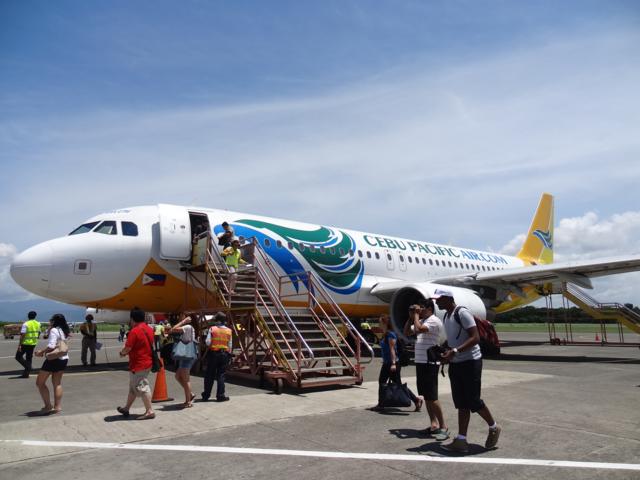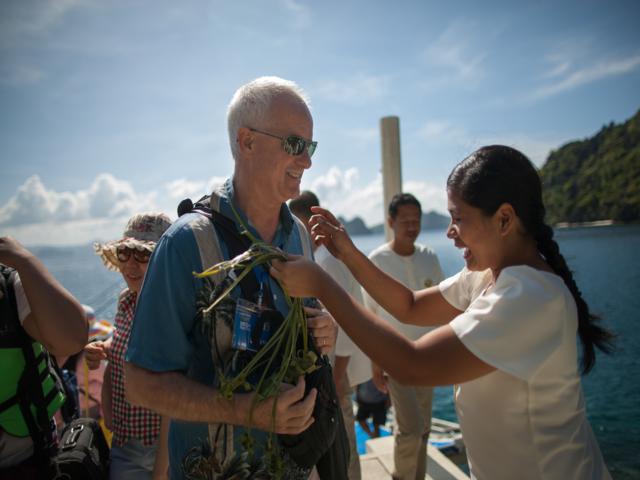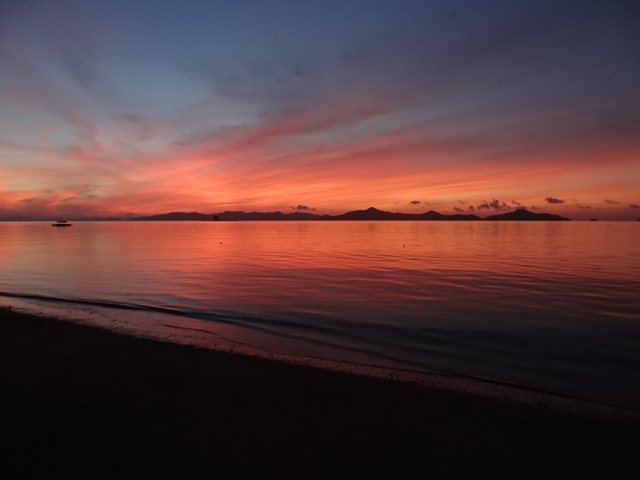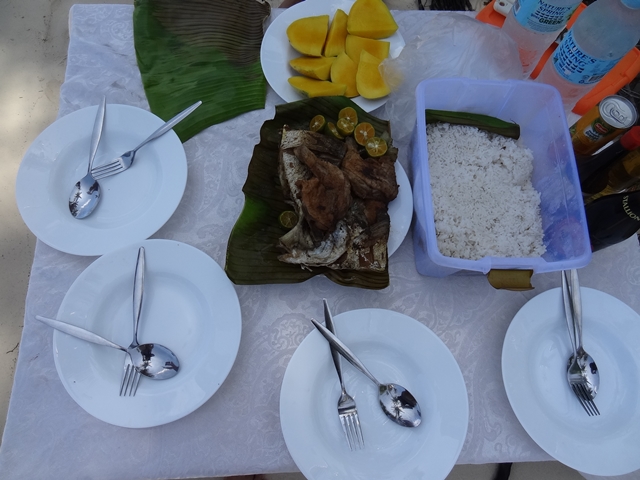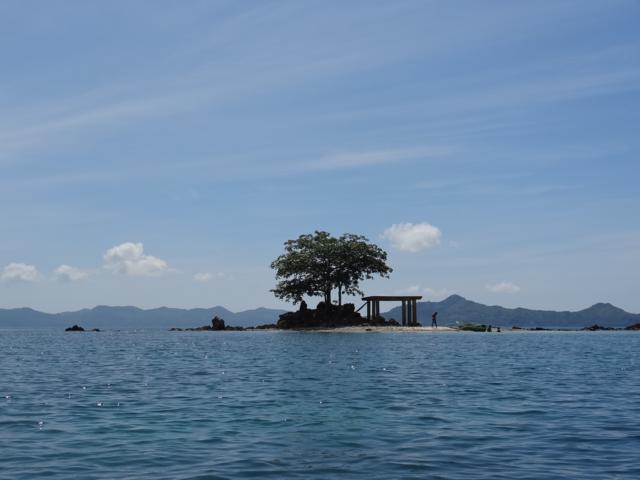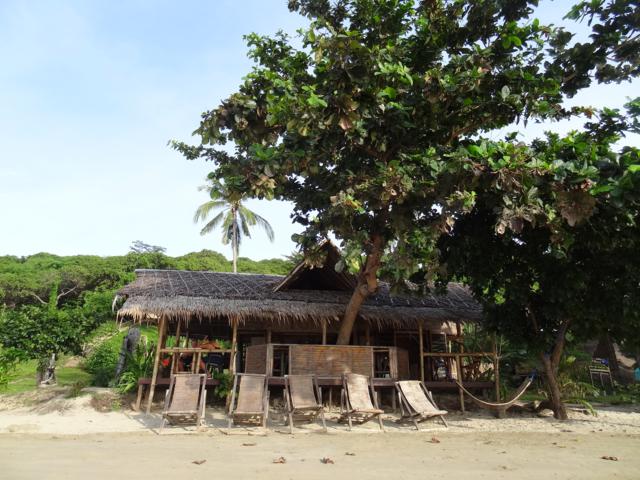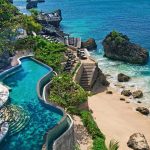Tapik Palawan — Tread on a paradise of Palawan island
Tapik offers it all: golden sunlight, blue water, white sand, lush green coconut palms, friendly neighbors, and delicious seafood.
Say “No” to Modern Technology
This trip to the Philippines was unlike any of my prior ones. Only after purchasing tickets to Manila do my companion tourist and I begin looking for prospective destinations in the country. My partner suggests Boracay, a popular tourist destination. However, in order to create a really unique and one-of-a-kind picture album, I decide to venture off the usual path. This country of 7,107 islands surely have a fantastic and one-of-a-kind spot for us! After hours of searching, that location was discovered to be Tapik, which is located on the faraway island of Palawan.
To get to Tapik, we had to travel from Manila to Puerto Princesa, then take a sixhour boat ride to El Nido. We opt to stay overnight in El Nido since the passenger car stops there at nightfall, giving us a chance to see the evening clouds over Corong Corong beach, where we “may see the most magnificent sunset in Palawan,” according to the Petit Futé guidebook. There are cottages available for overnight stays, and the Saturday morning market is worth getting up for.
You may get to Tapik from El Nido in one of three ways: rent a motorbike, call your guesthouse to be picked up, or ride in a Jeepney with the locals. We went with the third (and least expensive) choice. The local transit was an adventure in and of itself, jostling with guests, chickens, locals, and the tangled legs of adolescents perched on the roof. Due to bad road conditions, steep terrain, and the Jeepney making unexpected stops, dropping off passengers at their village houses, the 35-kilometer journey from El Nido to Sibaltan hamlet (near Tapik beach) took an amazing two hours.
During the ride, you may learn about the lengthy travels that people do to send their children to the hospital, look at the vehicle’s top that is packed with items being delivered, introduce yourself to the passengers, and learn about their way of life. Their tales and kind demeanor made my partner and me feel perfectly at home. We met a woman who had been working in Saudi Arabia for six years and asked her why she returned to her rural home, despite her great pay and success outside of her homeland. “I made enough money to support my brothers and sisters,” she explained. After that, I didn’t need anything else. Why stay away from those you made the sacrifice for in the first place? I decided to come home.”
Randy, the manager of Tapik Beach, meets us as the Jeepney arrives at Sibaltan hamlet. We arrived at the Tapik Beach Park Guesthouse after trekking 800 meters through beautiful green coconut palms. Despite the fact that the venue only opened to the public at the end of 2013, we were not the first Vietnamese visitors. A Saigonese girl had visited and slept at this same hostel a month previously!
Tapik: Empty and Pristine
The guest house, which faces east, is in a great place to view Tapik’s mustsee dawn. Randy invites his visitors to a bonfire on the beach every night as they wait for the moon to rise. Among the stories told in different languages, murmurs of other tourists, scents of wonderful foods in the kitchen, and flavors of tropical wines, I recall a longanticipated ambition of mine to see the rise of the moon over a desolate beach like this. My wish is realized, as we watch the white figure emerge from the sea and take its position among the stars, surrounded by flames and the fragrance of smoke and food.
According to Philippine flyers, each given area in the country is within two hours of a beach. And don’t stop there; the aquatic life is among the most vibrant on the planet. If you visit the Philippines, don’t skip out on a diving expedition or a boat ride. From 10 a.m. to 4 p.m., Tapik Beach Park Guesthouse provides a trip for 1,200 pesos that sails past four sites: Binulbulon, Malabuso, Maosouon, and Mazonon. You may dive at the first two locations to observe coral reefs, sea turtles, colorful fish, and even young sharks swimming around you in the pristine water. One day on our trip, Randy takes us to an island without any visible footprints; we could not use words to describe its marvelous scenery. For my Hanoian partner, this is the first time she has walked on an isolated beach.
Tapik, dubbed a paradise by both visitors and residents, may hold a highly extravagant celebration. Randy serves us cooked crab with a coconut milk sauce on the first night. Each of us is served two large crabs at a fairly reasonable price of around 200,000 VND. Adobo, a chicken or pig marinated with garlic and grilled before being stewed with vinegar, laurel leaves, salt, and black pepper, is the most popular meal in the Philippines. Meanwhile, some coconut milk is poured to the Tapik adobo rice.
During my visit to the Philippines, I was drawn to all delicious foods, including shrimp and squid, all served with rice. We could taste the sourness of kalamansi, a kind of lemon that is frequently used to garnish dishes. A buko, or young coconut plucked from seashore coconut trees, is the finest alternative for cooling off in hot weather. Many foreigners, like me, are surprised to find locals drinking buko in the early morning hours in Manila.
Only One BoBog on Earth!
From Tapik, you can view BoBog, a wild island with a funny name. On this little and secluded island, there is just an ancient wall that used to be a guardhouse. Because of the island’s natural and unspoiled qualities, any tourist who has their own bath will feel like Lord of the Island. At midday, we start kayaking to BoBang with the assistance of the Guesthouse’s waiter. The beautiful sky and the sea combine to create a wonderfully tranquil sight.
Our host was still beaming at the places he showed us at the end of our tour. In response, I show him a video of bustling Danang streets, hoping that he will appreciate my city and possibly come someday. He chuckles, contrary to my expectations. “There is no BoBog there!” he exclaims, his decision between the two apparent. Of course, the disadvantages of living in Sibaltan village are obvious. Living circumstances are poor by Danang standards: the internet signal is unstable, electricity is only available from 5 p.m. to 10 p.m., and the water supply is not always consistent.
Despite these circumstances, he considers his hamlet to be lovely. His wild island, BoBog, is even more amazing than my bustling metropolis, which is a dreamland for millions of people. However, I have to agree with him that this is a paradise. Tapik will remain my image of the best location on Earth until I can discover a whiter beach, more wonderful cuisine, more caring people, and smoother sand!
Further information
- Tapik Beach Park is located in Barangay Sibaltan, a village in the east of El Nido, Palawan province. Cebu Pacific, PAL Express and AirAsia provide flights between Manila and Puerto Princesa.
- Besides these options, you can take direct flights from Manila to El Nido; however, this route is more expensive than the flight to Puerto Princesa, where you can take a car to El Nido in six hours and contact Tapik Beach Park to be picked up.
- The best time to visit the Philippines is from December to May.











